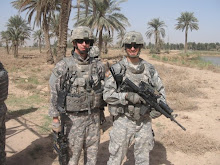I am sure that many of you are scratching your head on why I am talking about UFC (Ultimate Fighting Championship) on a MBA blog. First, for all of you that do not know what UFC is, it a mixed martial arts promoting the top fighters from all fighting style (kickboxing, wrestling, submission, karate, judo,etc) against one another. They produced a show called the Ultimate Fighter where 16 fighters train and compete against each other for a contract. To say the least I am a big fan of the show.
But how does this tie into organizational behavior. Well, the 16 fighters are split into two teams of 8 each and our trained by a current and successful UFC fighter. And to boost ratings they always find two coaches that have some kind of animosity towards each other (it would not be reality TV without). On the current season, there is a real dichotomy in the leadership displayed by both coaches. In this case both coaches once held the Light Heavyweight Championship. Coach A, Rashad Evans, has a very positive approach to his team. He is always encouraging them, giving them insights, generally fostering a strong team unity. He leans to team first. Rashad is there to pick his guys up after they fail. Coach B, Quentin “Rampage” Jackson is more critical in his evaluations of his team. His approach is to not really train them but to offer information from his experience. He does foster team unity and focuses more on the individual. In many episodes, if his fighter fails he just walks away in disgust.
SO after about 6 episodes in which one member of each team faces each other, who do you think has won the most fights. If you chose Coach A, Rashad Evans, you would be right. Not only has won most fights but as of today his team is undefeated. Is this really that shocking? From our study on positive and negative affectivity, each can have a dramatic effect on work related performance. Coach A is constantly showing his support for his guys, interacting with them, genuinely taking interest in them. Coach B has not developed close ties with his fighters, and many times when they lose he does not even go into the ring to check on them. The show provides a great example how attitudes and personalities can affect work performances.
Wednesday, October 21, 2009
Subscribe to:
Post Comments (Atom)

No comments:
Post a Comment